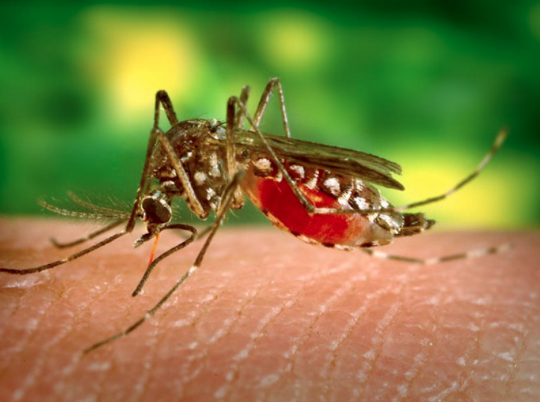Photo: The type of mosquito that carries the West Nile virus.
The Massachusetts Department of Public Health announced on Monday, Aug. 27 the fourth human case of West Nile virus in the state this year. The person is a woman in her 50s from Middlesex County who was never hospitalized for her illness. Three other cases were reported on Friday.
Investigations conducted by state public health officials indicate that at least two of the four cases were exposed in the greater Boston area leading them to raise the risk level from moderate to high for 11 communities including Belmont.
The other communities are Arlington, Boston, Brookline, Cambridge, Chelsea, Everett, Medford, Newton, Somerville, and Watertown.
“Several individuals from the same area have developed West Nile virus,” said Public Health Commissioner Monica Bharel. “That means that there is an increased risk in this specific area and that additional people could become infected. We are particularly concerned about people over 50 and those who are immunocompromised as they are the ones most likely to develop WNV disease.
For those 11 communities now at high-risk, DPH recommends that local health officials intensify messaging to raise awareness and promote personal protective behaviors, target outreach to high-risk populations, and increase surveillance for human disease.
People at high risk for severe illness are encouraged to consider avoiding outdoor activity at dusk and dawn. Local boards of health should continue to work directly with their Mosquito Control District to determine appropriate control measures.
“It is extremely important for people to take steps to avoid mosquito bites, including using repellents, wearing clothing to reduce exposed skin, dumping standing water, and moving indoors when you notice mosquitoes biting you,’’ said DPH State Epidemiologist Dr. Catherine Brown.
West Nile virus is usually transmitted to humans through the bite of an infected mosquito. While the virus can infect people of all ages, people over the age of 50 are at higher risk for severe disease. Most people infected with West Nile will have no symptoms. When present, WNV symptoms tend to include fever and flu-like illness. In rare cases, more severe illness can occur.
People can take steps to protect themselves and their loved ones from illnesses caused by mosquitoes.








Leave a Review or Comment